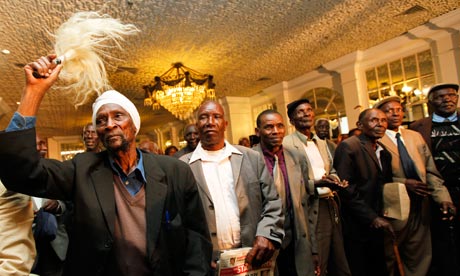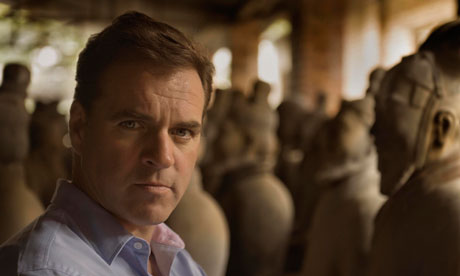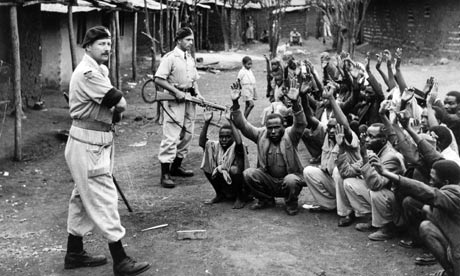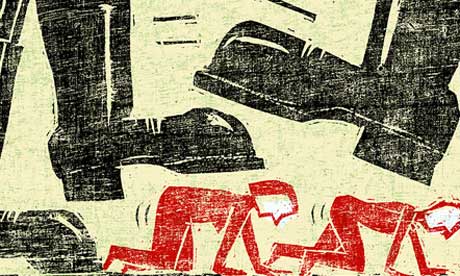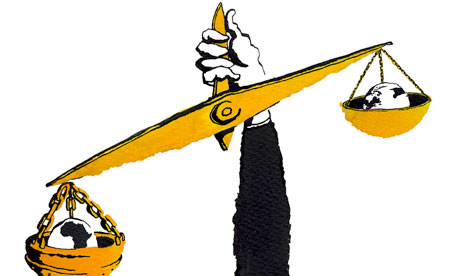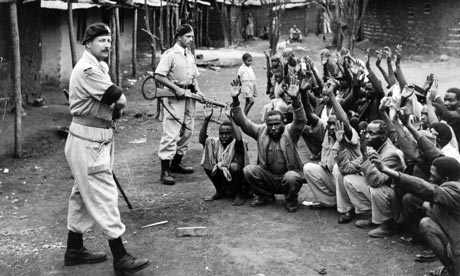The close ties between politicians and the media mean that if Murdoch's empire falls, the political establishment will suffer
At 2.30 on Tuesday 19 July, the story that has spread itself over the news for weeks will reach one of its most spectacular moments. An elderly American–Australian billionaire and his 38-year-old son will be transported to the Houses of Parliament, along with a 43-year-old woman from Warrington, long used to the company of the rich and powerful, but freshly departed from her high-powered job and just released from a central-London police station. There, they will face a committee of MPs, from a wide array of backgrounds – among them, a trade unionist's son from Kidderminster; a privately educated chick-lit novelist who has recently married the manager of Metallica and the Red Hot Chili Peppers; and a woman who was once the finance director for the company that makes Mars bars.
Exactly what will happen when
Rupert Murdoch, James Murdoch and Rebekah Brooks face the culture, media and sport select committee is anyone's guess. Tom Watson – the Kidderminster-raised
Labour MP whose dogged pursuit of News International forms one of the key threads of how the hacking scandal has played out – warned the Guardian against getting too excited. "There is not going to be a killer blow on Tuesday," he said. "Expectations are way too high."
That may be true, but even if the trio hide behind half-answers and obfuscation, there will plenty on which to feast. Body language will be picked apart; pauses will acquire huge significance; the merest slip-up might open up very damaging lines of inquiry. And besides, the event will be defined by one massive piece of symbolism. In the 43 years he has been operating in the UK, Rupert Murdoch has never formally faced British MPs. Why would he, when the most powerful among them would gladly grant him regular audiences, opening the back door of Downing Street so they could check that everything in his world was as perfect as it could possibly be?
Yesterday, in the wake of yet more arrests and resignations, I listened to another media appearance by Steve Hewlett, the Guardian columnist and presenter of Radio 4's Media show – who, in the midst of droves of talking heads coming close to losing theirs, has sounded a dependable note of calm and real insight. As far as I know, he has not talked about the "British Spring". But when he popped up towards the end of the Today programme, he seemed to agree that something absolutely remarkable was afoot.
"It's almost as if the whole establishment – the political-media elite – is in a state of wobble," he said. "Any association with Murdoch and his papers, which quite naturally everybody has had in some form . . . is now so toxic that any mention of it is . . ."
A pause.
"I mean, look: it's
carnage. It's almost as if the light has suddenly come on, and everybody has said: 'Good lord – were we doing
that?'"
This is an example of what he means. On Saturday 2 July, Rupert Murdoch's daughter Elisabeth and her millionaire PR husband Matthew Freud hosted a party at their 22-bedroom mansion in the Cotswolds. Michael Gove, the education secretary, was there. So was
David Cameron's
consigliere Steve Hilton, and the culture minister Ed Vaizey. The Labour figures in attendance included Peter Mandelson, the ex-work and pensions secretary James Purnell, the shadow foreign secretary Douglas Alexander - and his shadow cabinet colleague Tessa Jowell, who reportedly arrived with her supposedly estranged husband David Mills. They were joined by David Miliband – who, let us not forget, was supported in his quest for the Labour leadership by the entire Murdoch stable of
newspapers.
Robert Peston was glimpsed in deep conversation with Will Lewis, News International's general manager. The BBC's director general Mark Thompson turned up, along with Alan Yentob, Jon Snow from Channel 4 News, Bear Grylls, Mariella Frostrup, Lily Allen and Patrick Kielty. And what a time they had: thanks to Nick Jones, the owner of the members-only Soho House club and husband of Desert Island Discs' Kirsty Young, two marquees had been turned into pop-up versions of his London reaturants, Cecconi's and Pizza East, and drinking and dancing went on until 4am.
Also among the guests was James Murdoch, who spent much of the night talking intently to Rebekah Brooks – whose behaviour that night was said to be somewhat uncharacteristic. "Usually, Rebekah flits around having a word with everyone," one witness told the Daily Mail. "She loves being the centre of attention. But that night, she spent nearly all her time with News International people."
The following Monday, when plenty of the revellers must still have been feeling groggy, the Guardian ran the story by Nick Davies and Amelia Hill about Milly Dowler's phone being hacked. And so began the explosion of revelations that has – for the time being, at least – blown this cosy, cloistered world apart.
A long love affair
Self-evidently, powerful people tend to cluster together. Those who control the media are a particularly strong magnet for the rich and influential, and there is a long history of people from all sides of politics sharing their company. Take note: that great socialist godhead Aneurin Bevan was a friend of Lord Beaverbrook, as was Bevan's protege Michael Foot, who was so enamoured of the proprietor of the two Express titles and the London Evening Standard that he once said this: "I loved him, not merely as a friend, but as a second father."
But the endless scramble to Rupert Murdoch's table, and the powerful milieu that sprouted around him and his children, has been something new. When he decisively began to exercise his grip on British politics in the 1980s, Murdoch was an intimate of Margaret Thatcher, who cleared the way for his move into British television, though to claim that she was under his spell was deeply misplaced. As with so many things, the rot decisively started under New Labour, thanks to obvious enough reasoning: News International had so tortured John Major and Neil Kinnock, that rather than be monstered by people who evidently decided who to target and then pursued them to the point of destruction, it was surely better to get them decisively on side, via whatever means were necessary. So, in July 1995,
Tony Blair and his retinue famously made their whistlestop trip to a News Corp conference in Hayman Island, off the coast of Australia.
The Murdoch factor undoubtedly informed swaths of New Labour politics: not least, an ingrained reluctance to embrace the more economically interventionist aspects of the European Union, and a reckless belief that Britain should always support American foreign policy, no matter how dangerous the consequences (never forget: all of Murdoch's newspapers loudly backed the invasion of Iraq). Moreover, even before Blair entered Downing Street, he and his allies' closeness to News Corp seems to have led to very precise manoeuvres on Labour's media policy.
In 1996, for example, the Major government's broadcasting bill was making its way through parliament. There was particular controversy surrounding the question of whether the legislation should force Murdoch to manufacture digital TV boxes that could be used for services provided by other companies – so that, if you chose to buy BSkyB kit but wanted to watch television delivered by another provider, that was possible. The alternative was effective monopoly, as plenty of Labour MPs well knew. But when it came to the vote at committee stage, two Labour members mysteriously went missing, meaning that the vote was tied 11-11, Murdoch got his way – and we began our passage into that brave new TV world where BSkyB has a UK market share of 80%.
If you read Volume One of
Alastair Campbell's diaries, you find one possible explanation, not just for this, but other New Labour capitulations to News Corp – such as the 2003 "Murdoch clause" that relaxed the rules on the acquisition of TV companies by newspaper owners, and thus opened the way to a Murdoch buyout of Channel 5 (which didn't happen – though it's this change that allowed in that unseemly sub-Murdoch Richard Desmond). It's there in an account of a meeting between Campbell, Blair and Mandelson, and
Les Hinton and one Jane Reed, then News International's director of corporate affairs. "They were clearly worried that party pressure would lead us to adopt positions on the broadcasting bill, and legislation if we got in, that would hit their business interests," Campbell recalls.
Later in the same paragraph, he seems to suggest that in return for Labour's quiescence on these issues, they expected full and consistent support from Murdoch's newspapers: "I emphasised that they had to understand that there would be a big price to pay in the party if we restricted and curbed the natural desires of people to do something about Murdoch, and ultimately the Sun and News of the World really went for us."
When I interviewed Campbell last year, he was at pains to deny that the Blair government had ever offered News International any kind of
quid pro quo on anything. Still, I asked him about the broadcasting bill, and suggested that behind his account of meeting Hinton and Reed and that mention of "curbing" the collective Labour desire to somehow move on Murdoch, there had been a whole tangle of intrigue. He nodded. "Mmmm. Mmmm," he said. "I'd forgotten about that."
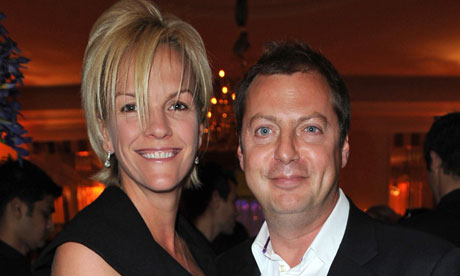 Power couple: Elisabeth Murdoch and Matthew Freud. Photograph: Richard Young/Rex Features
Power couple: Elisabeth Murdoch and Matthew Freud. Photograph: Richard Young/Rex Features Twelve years later, in the summer of 2008, David Cameron was transported in a private plane – laid on by Freud – to the Greek island of Santorini, from where he was ferried to Rupert Murdoch's 184ft yacht the Rosehearty, for an important meeting. The following year, the Tories began to harden a new antipathy to the BBC, floating the freezing of the licence fee and urging the corporation to do "more with less": messages that were in accord with the chippy anti-BBC lecture James Murdoch gave at that year's Edinburgh TV festival. Just over a month later came achingly predictable news: that the Sun was swinging its support behind the
Conservatives, and dumping Labour.
By then, the spell cast by the Murdoch empire on politicians of all parties was endlessly reported as if it was the natural order of things. The next year, when the Sun announced its support for the Tories with the headline "Labour's lost it", even the BBC reported the switch as if it were an enshrined part of the British political process, rarely questioning why its reporters were paying so much attention to the whims of one man, or what it said about the fall of our politics that his manoeuvrings were considered so important.
Meanwhile, the so-called Chipping Norton set – the Camerons,
Elisabeth Murdoch and Matthew Freud, Brooks and her husband Charlie, Steve Hilton and his wife Rachel Whetstone, Google's head of communications and public policy – was developing into a hardened clique. News International had long since seduced not just politicians, but police officers. In Sunday's deluge of news about Met commissioner
Sir Paul Stephenson, one story was strangely overlooked: that according to the New York Times, his links with News International were sufficiently close for him to have "met for meals 18 times with company executives and editors". All told, British politics was blurring into a mulch largely built around policies the Murdochs could endorse, and their company was apparently so gone on its own power that some of its staff obviously thought they were way beyond the law.
The unpopular press
Which brings us to some of the most important questions of all. Even before the hacking scandal decisively broke, how does anyone suppose all of this was this playing with the public? How did ordinary voters feel, watching every broadcast outlet telling them that Murdoch had swapped from Labour to Tory, and implying that the next election was thereby all but decided, as if their own votes counted for precious little? As they heard about Blair's trip to Australia, or Murdoch and Cameron's tete-a-tete in Greece, what did they think? This is not to suggest that millions of people were anywhere near as hostile to the Murdoch empire as hard-bitten lefties, nor that the politics of his newspapers did not chime with those of millions and millions of people: but rather to point out that if politicians have long gnashed their teeth about "disconnection" and the decline of public trust, the fact that they have increasingly formed a distant, pampered elite – with the Murdochs at its centre – must surely provide some of the explanation.
Right now, as the arrests and resignations pile up, you wonder how dangerous all this is for the amazingly small collection of people who have such a colossal influence on British public life. Comparisons between the fall of News International and the crisis that beset the banks are currently 10-a-penny, but there is one point of comparison that has not yet been mentioned. Just as the entire banking system was almost brought down by the insidious contagion of bad debt, might an entire establishment be horribly damaged by its equally widespread and just as toxic links to News Corp? Each time Andy Coulson crash-lands in the headlines, David Cameron flinches. When Stephenson resigned thanks to the Met's links with the former NoW staffer Neil Wallis, he made explicit reference to Coulson, and thus defined a whole swath of the next day's headlines, as well as jangling Downing Street nerves even further. Now Assistant Commissioner
John Yates has gone – and
Boris Johnson remains under fire for the London mayoralty's failure to act on the seemingly unhealthy connections between Wapping and Scotland Yard.
On and on it goes. In every report that followed Brooks's resignation and arrest there were potent images of her in the company of Blair, Cameron and others. Ed Miliband may have largely kept his distance from the Murdochs, but there are plenty of senior Labour figures who have been only too happy to pay court, repeatedly. And one other thing worth knowing before the select committee hearing: according to the Independent on Sunday, its chairman, John Whittingdale, has dined with Brooks, met Elisabeth Murdoch on several occasions, and is a good enough friend of Hinton to have been invited to his wedding in 2009 (he didn't go). As you push through the establishment and encounter endless links to News Corp, you start to wonder where it will all end. Questions even started to be asked about whether the prime minister should consider his position. When Stephenson resigned, a friend texted me: "Who's next: the Queen?"
As this whole saga develops, some people's hopes are being raised into the stratosphere. Undoubtedly, it has been great to see a Labour leader so confidently end his party's demeaning relationship with Murdoch, and widen the argument into a discussion about wider irresponsibility at the top and the dangers of large concentrations of power. Yes, we now have the best hope in generations of convincing laws on media ownership. There is a good chance that if Murdoch's shadow recedes, politicians will extend the national debate into at least some of the areas that have been shut off for far too long.
But beware one thing in particular. After the fall of the banks and the scandal of MPs' expenses, the events of the last two weeks are less likely to result in a gleaming new dawn than a deepening of a deadened public scepticism about Britain's elites, and our politicians in particular. We've heard a lot about Watergate lately: it's worth bearing in mind as the full extent of the Nixon administration's transgressions became clear, the main result was not a massed drive to get politics working again, but a drastic hardening of the public cynicism that had initially taken root thanks to the Vietnam war. In 1964, three-quarters of Americans believed the government in Washington could be trusted to do the right thing; in 1974, it was just over a third. Eventually, politics was revived not thanks to the Democrats, but Ronald Reagan and the populist New Right.
In other words, you could be forgiven for looking beyond the hacking scandal and asking a sobering question: rather than marking the point at which Westminster starts to make some kind of recovery and politicians are entrusted to clean things up, might it actually push us into a deadening stand-off between most of those at the top, and a public who now simply trust no one at all?
The Sunday before last, Elisabeth Murdoch was allegedly heard claiming that her brother James and Brooks had "fucked the company". Here's my fear: that as the revelations extend into the distance, they may have done the self-same thing to our politics and public life.
